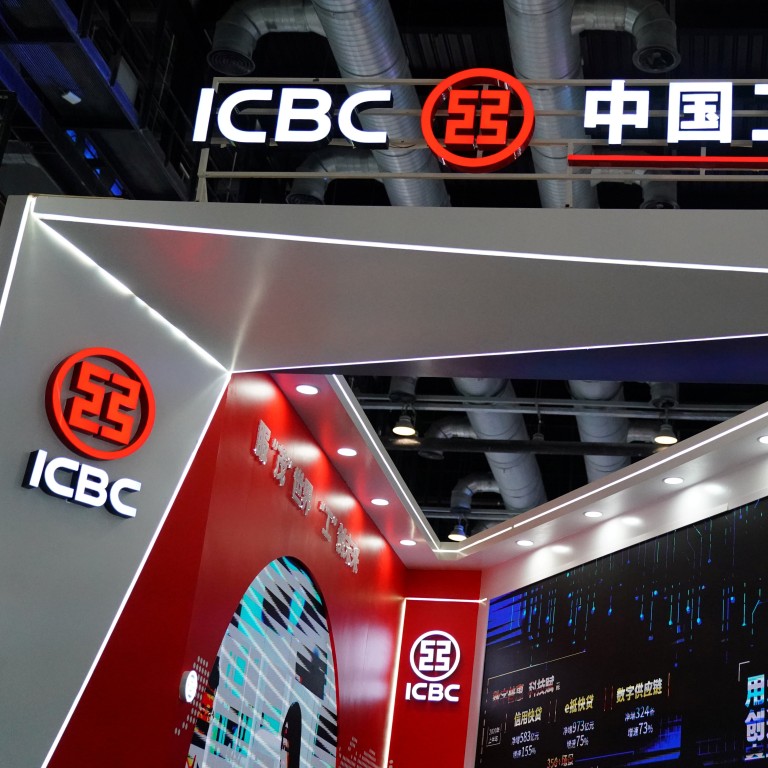
China’s biggest banks may follow HSBC in trimming dividend payout amid biggest earnings setback since 2008 crisis
- A 10 per cent decline in earnings may result in zero dividend for bank investors, according to Jefferies
- Some Chinese banks may have no room to raise fresh capital from the stock market if their price-to-book value ratios dip below one
Chinese banks may have to trim or even skip dividend payout this year, in the footsteps of some western banks, because of the biggest earnings setback since the global financial crisis in 2008.
Shrinking profit is likely to prompt lenders to shore up their capital adequacy buffer amid a wave of bad loans as businesses cratered from the impact of Covid-19 pandemic. China’s economy shrank 6.8 per cent in the first quarter, before rebounding 3.2 per cent last quarter.
“Banks’ capital adequacy ratios would drop drastically if they continue to maintain their usual dividend payout ratio,” said Chen Shujin, a banking analyst at Jefferies. A 10 per cent drop in net profit is likely to cause banks to withhold dividend this year, Chen added, while a 5 per cent setback could prompt them to reduce the payout ratio by 10 percentage points.
Senior Chinese bank officials this month said their 2020 full-year profit will continue to weaken after recording about 9-10 per cent decline in the first half. Their core tier-1 capital ratios have also dropped as they dialled up provisioning for bad loans.
China sends 500 senior bankers for training on risk controls as bad loans at decade-high worry regulators
“Covid-related support measures imposed on banks will mean that city commercial banks will face a double-headwind in capital replenishment, and [worsening] asset quality,” said Li Nanqing, president at WeBank, a digital bank controlled by Tencent, at a forum on Wednesday.
Asia-Pacific banks must make radical changes to survive the coming slump
Banks can bolster their tier-1 capital by 300 billion yuan to 500 billion yuan by 2024, just by slashing their dividend payout ratio from 30 per cent to a range of 20 to 25 per cent over a five-year period, Iris Tan, an analyst at Morningstar, wrote in a report.
Some of the major bank shareholders, such as China’s national social security fund, rely on dividend payments to fill their funding coffers, a factor to be considered when banks tweak their dividend policy.
Banks have very limited avenues in replenishing their core tier-1 capital, whereby the regulatory minimum requirement is at 7.5 per cent. A part of a bank’s capital that helps them guard against unexpected expenses, core tier-1 can only be satisfied either by earnings, or common equity.
According to regulations, state-controlled Chinese banks are not allowed to price new share placements below their per-share book value. As banks fell out of favour with investors, some like Industrial and Commercial Bank of China, China Construction Bank have seen that ratio languish below one.

